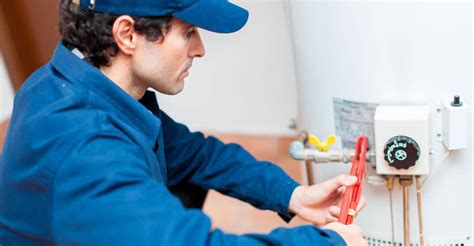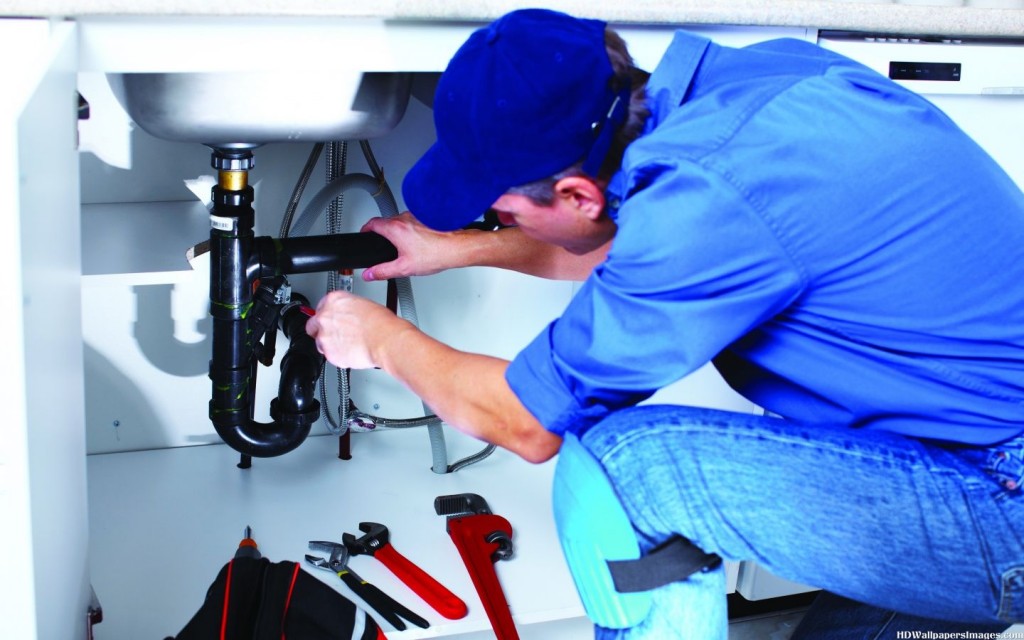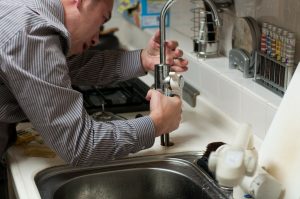 Homeowners deal with plumbing and HVAC problems every now and then. And although there are plumbing needs that require a call to the professionals, there are also those that can be handled by just about any homeowner without the need to spend extra for service repairs. Here is a compilation of helpful plumbing tips to help you bring down your water bills and at the same time save some money on plumbing repairs.
Homeowners deal with plumbing and HVAC problems every now and then. And although there are plumbing needs that require a call to the professionals, there are also those that can be handled by just about any homeowner without the need to spend extra for service repairs. Here is a compilation of helpful plumbing tips to help you bring down your water bills and at the same time save some money on plumbing repairs.
Dishwashers, Washing Machines, and Ice Makers
- The best time to run your dishwasher and washing machine is during off peak hours and night time. Using these appliances during certain parts of the day ensures that you conserve temperature and water pressure.
- Check on the supply hose for any sign of leaks, cracks, or any sign of weaknesses.
- Also make a regular inspection of the connections to ensure everything is tight and secured.
- To avoid clogs, make use of a panty hose or even a wire trap to cover the hose that drains water from your washing machine?
- In case your dishwasher’s drain line is leaking, it may be due to incorrect installation. To avoid getting the water caught in the line, simply look for the drain hose from the cabinet, hang it upwards and then run it through the sink drain.
Garbage Disposal
- To prevent your drain from clogging, stop throwing in waste that is difficult to grind.
- Always make sure that you have the garbage disposal on before you add in any waste material.
- It is recommended to run the cold water before and after using the disposal to help flush the waste.
Drains
- If you keep having clogged pipes, it might be because of the cooking oil or fats that you pour down the drain. Remember that these could get stuck on the walls of your pipes, harden, and cause some clog problems.
- To avoid getting unnecessary wastes stuck in your plumbing pipes, use strainers over the drains.

Basement, Walls, and Floors
- Get your floor drains snaked to avoid flooding.
- Take advantage of a battery-operated flood alarm.
- Be keen to some staining around the toilet base. This usually means there might be some water damage.
- Another sign of water damage is having loose or leaky tiles or walls. Check on your walls, floors, and tiles to make sure that there are no leaks.
Outdoors
- It is every homeowner’s responsibility to clean the drains, gutters, and downspouts to avoid the debris from building up and causing a clog.
- Regularly check hose bibs and faucets to ensure that there is no leak or any kind of dripping. By getting these things checked you can make sure that the water you are paying for does not go to waste.
- Having a lot of water in your yard could mean a damaged sewer lines or a broken pipe. It is important to get this addressed as this may put you and your family’s health at risk.
Bathroom
- Never flush any of these down the toilet – facial pads, sanitary items, hair, cotton balls, diaper, or anything else that can get stuck in the pipes and case a clog.
- To check for toilet leaks that are not very visible, put some food coloring in the tank and leave it for about 30 minutes. Any sign of coloring that goes in the bowl means that there is a leak in your toilet.
- Check for worn out toilet parts. If you’re making an extra effort to hold down the handle when flushing, this usually means it’s time to get some parts replaced. The amount you spend getting the parts replaced is a lot cheaper than the money you spend on increased water bills.
- Check if the flapper has sediment build up or if it has any sort of damage that cause water to continually run which increases your water bills. You can either get the flapper cleaned out or you can also just have it replaced.
- An indication that there is too much iron in the water is when you see an orange or pink tint surrounding your bathroom fixtures.
- You can resolve this problem with a water softener.
- Never purchase a showerhead simply because it’s cheap. It’s usually the cheaper kind that fails easily and quickly. Choose fixtures based on quality over price.
Valves
- A very simple and yet very important tip is to know where your main water valve is located and learn how to actually use it. You will find this very helpful when you come across some water leaks in your home.
- The supply valves under the toilet and the sink should be turned or moved every now and then to prevent them from getting stuck.
Water Heater
 To avoid high energy costs, always set the temperature under 120F.
To avoid high energy costs, always set the temperature under 120F.- Over time, sediments can build up in your water tank. To avoid sediment build up that also causes corrosion, flush the water heater tank by several gallons.
- Water heaters usually last up to 15 years. You could be wasting energy and money just by having an old water heater. Just because it works doesn’t mean it’s efficient.
- Never put or store any flammable item right next to or near the water heater or a furnace.
- Check for any sign of corrosion as this might lead to more problems in the future.
Prevent Pipes from Freezing
- Do not leave garden hoses connected outside when the weather is freezing. This prevents water from getting into the hoses and freezing.
- Make sure the faucets outside are not leaking or dripping as this could cause the pipes to freeze and eventually break. If any leak is found, make sure it gets patched up or repaired the soonest time possible.
- As much as possible, drain water from all pipes and shut off any valve that leads to outside faucets.
- You can protect outdoor faucet by making use of insulation kits.
Prevent pipes from freezing by using insulation materials such as heat tape or thermostat-controlled cables. - Make sure that the furnace doesn’t go lower than 15 C during the winter season to help prevent the pipes from freezing and then cracking. Remember that even the smallest crack can bring about a 250-gallon loss of water in just a single day.
- Regularly flush all the sediments from your water heater tank to avoid clogs and corrosion issues. This should also be strictly observed especially during the winter season as this is the time when the heater works the hardest.
- Maintain a temperature of 50 C for your water heater.
- Clear out debris and other unwanted items from gutters and downspouts to prevent clogs.
Avoid Using Liquid Plumber
- While you may seem them advertised as an effective tool for removing clogs, liquid plumbers are not recommended simply because it is highly toxic. The poisonous chemicals used in liquid plumbers may temporarily resolve a minor clog issue but will also leave the chemicals sticking onto the walls of your pipes and eventually damaging it. Here are some tools used by professionals:
- Hot water. This is a very simple and yet highly effective tool to get rid of clogs. Simply boil water, let it slightly cool, and then pour it down the drain.
- Plumber’s snake. This metal tool can be run through the pipes and help release whatever is stuck within the pipes walls.
End of Summer Tips
- These are great tips that can help prevent plumbing issues that may arise when the heating season starts.
- Summer offers the kind of heat that roots wants. Make sure to check for any roots in the sewer line that may cause clogs.
- This is the best season to check for any sign of leaks in the outside hose as you will rarely be using them in the fall.
- Do a routine check on all of your appliances to make sure there are no leaks and that they are all in top shape just before the heating season begins.
- Hope you enjoyed all these plumbing tips that will surely help you address most of your home’s plumbing needs!
